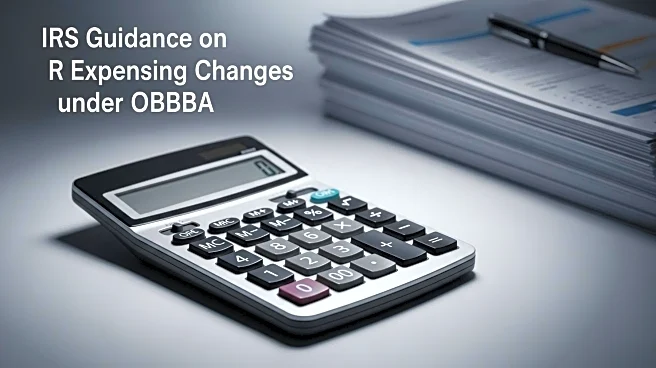What is the story about?
What's Happening?
The Internal Revenue Service (IRS) has released new guidance regarding the expensing of research and development (R&D) costs under the One Big Beautiful Bill Act (OBBBA). Signed into law by President Trump on July 4, the OBBBA reverses the Tax Cuts and Jobs Act of 2017's requirement to amortize R&D costs over five years, allowing for full deduction in the first year instead. The IRS's guidance includes transitional rules, modifications to Revenue Procedure 2025-23, and an extension for filing superseding 2024 federal income tax returns. It also outlines procedures for making elections under Section 174A(c) to amortize domestic research or experimental expenditures for taxable years beginning after December 31, 2024.
Why It's Important?
The restoration of full expensing for R&D costs is significant for businesses and individuals involved in research activities, as it provides immediate tax relief and encourages investment in innovation. This change could lead to increased R&D spending, potentially boosting technological advancements and economic growth. The guidance also offers clarity on tax filing procedures, helping taxpayers navigate the new regulations effectively. Stakeholders such as corporations, partnerships, and exempt organizations stand to benefit from the streamlined process and extended deadlines, reducing administrative burdens and enhancing compliance.
What's Next?
Taxpayers affected by these changes will need to review the IRS guidance to understand the implications for their tax filings and make necessary adjustments. Businesses may consider increasing their R&D investments to take advantage of the full expensing provision. The IRS may continue to issue additional clarifications as taxpayers begin to implement the new rules. Stakeholders should stay informed about any further updates to ensure compliance and optimize their tax strategies.















